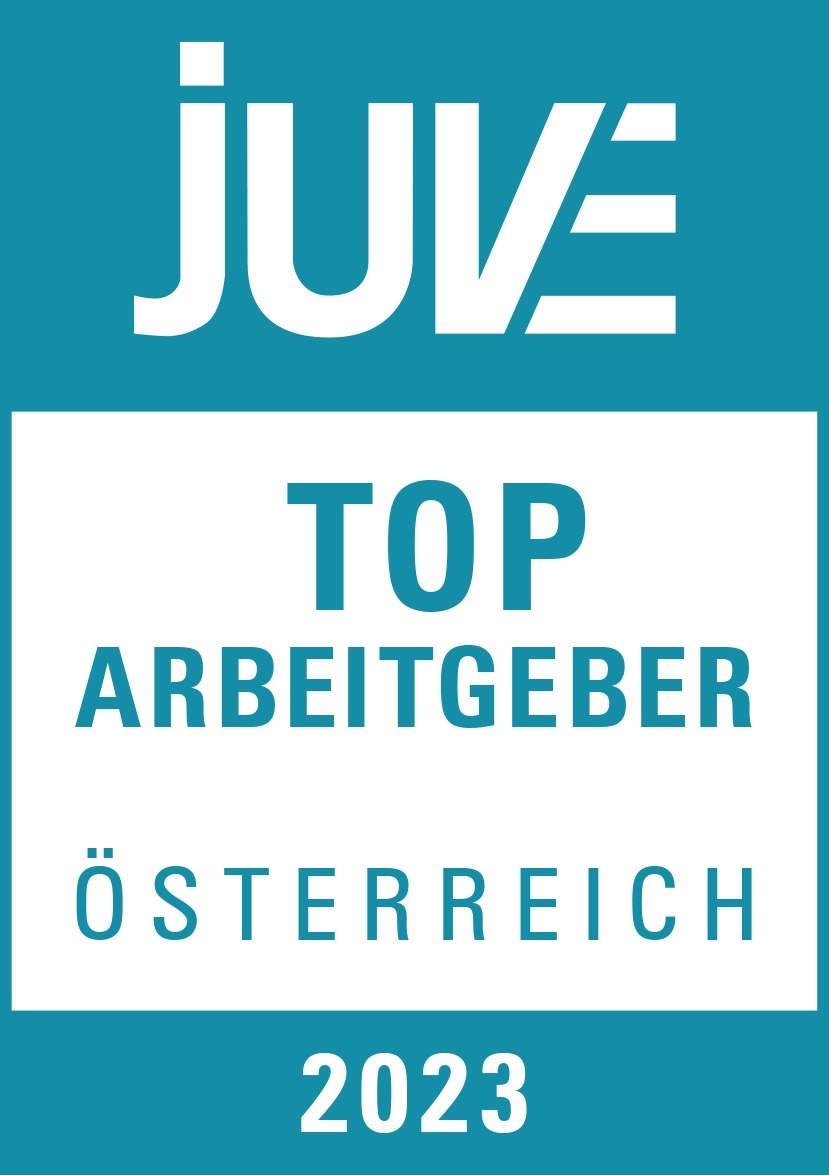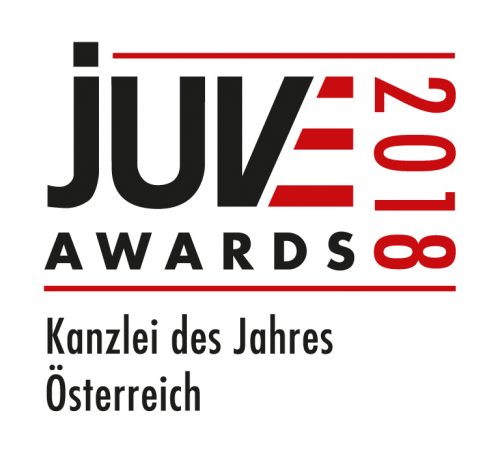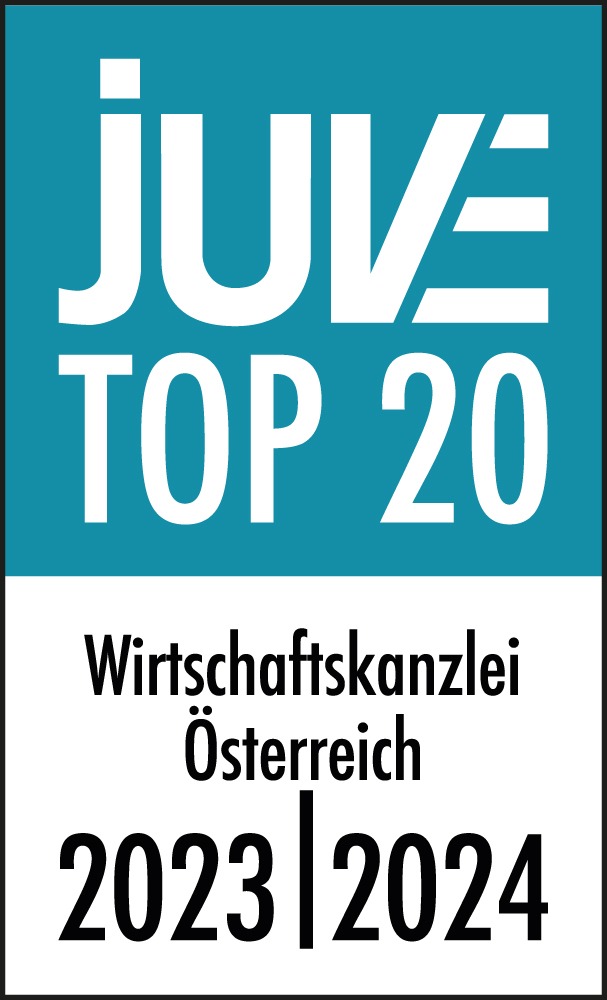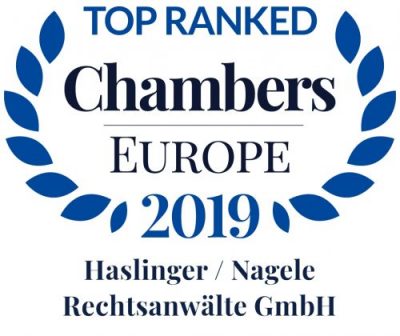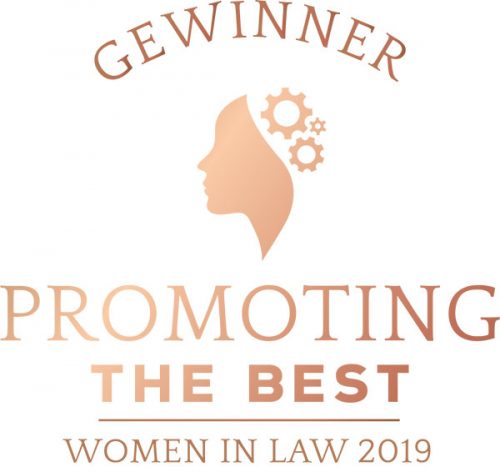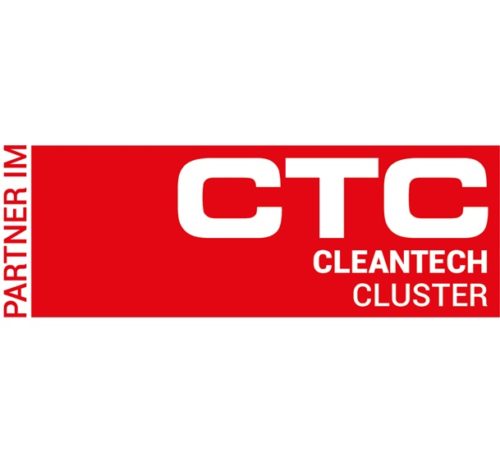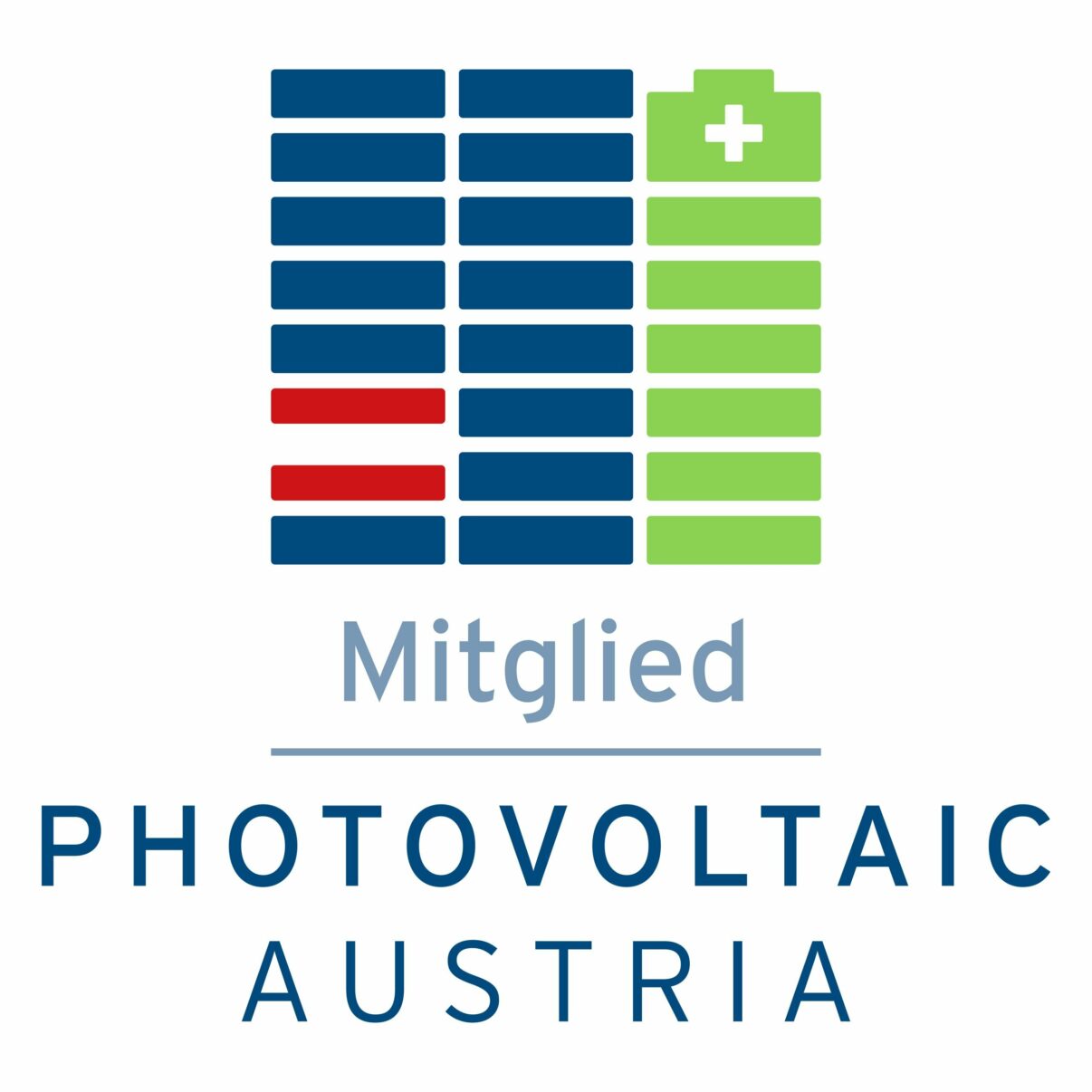Whistleblowing reporting systems
We help with implementation and processing!
Under the direction of Wilhelm Bergthaler and the moderation of Wolfgang Berger, the second part of the environmental law lecture series at the Johannes Kepler University Linz (JKU) took place on June 14th with the workshop “Circular economy in practice: How recycling and resource management can be (more) sustainable”. Numerous participants attended the event organized by the Institute of Environmental Law in cooperation with our law firm Haslinger / Nagele Rechtsanwälte and the Federal Ministry for Climate Action, Environment, Energy, Mobility, Innovation and Technology (BMK).
From a linear economy to a circular economy – this is the top priority of the United Nations (SDG), the European Union (Green Deal) and the Republic of Austria (Austrian circular economy strategy). In concrete terms, this means on the one hand a reduction in resource consumption and private material consumption and on the other hand an increase in resource productivity and the circularity rate. From the current perspective, however, to bring about such a transformation, even more legislative action will be required for more efficient market incentives, research and subsidies.
Regulatory barriers that start at the beginning of the product cycle – for example in the form of substance restrictions or bans – are indispensable for a more sustainable economy: Only products that can be kept in the cycle for as long as possible and, in particular, do not contain any harmful ingredients, should be placed on the market. In this context, the European Chemicals Agency (ECHA) plays a pivotal role. Its tasks include, among others, the authorization, restriction and prohibition of certain substances on the European market on the basis of the REACH regulation and POP regulation.
Reka Krasznai outlined the special role that waste plays in a circular economy. If waste is to be turned into a product or substance again, then from a legal point of view one finds predominantly restrictive standards that hardly meet the current demands of a more sustainable circular economy. In particular, the extremely late end of the waste status due to overly broadly defined environmental protection requirements contradicts an economy that circulates as quickly as possible. A corresponding adjustment at national level would therefore be necessary.
By contrast, more dynamic progress can be seen in the registration of secondary raw materials, i.e., those substances whose legal status as waste has ended and which are now to be returned to the cycle. The REACH regulation provides for numerous exceptions regarding the registration of these substances, especially if these substances have been recycled within the EEA and are identical to a substance that has already been registered. Apart from that, secondary raw materials are legally equivalent to primary raw materials, which makes it partially or entirely impossible to recycle restricted or even prohibited ingredients.
As a showcase for sustainable circular economy and recycling, jewelry designer Isabella Vincze also presented her current collection under the title “RELOAD, REBOOT, RETHINK!” at the workshop. Not just the title, but also her exhibits make it clear that our society needs to rethink and question established material values. In her works, luxury meets waste and precious metal meets electronic waste, which undoubtedly represents a harmony between the art of goldsmithing and electronic waste management.
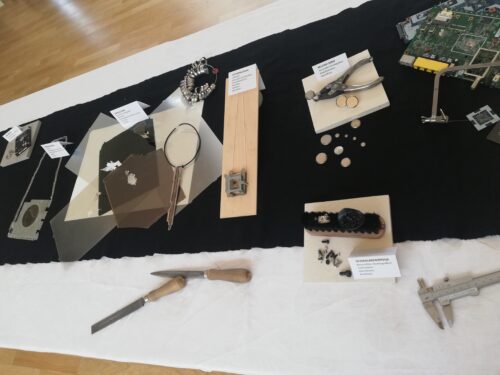
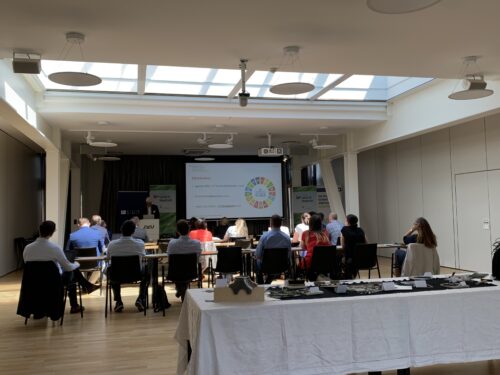
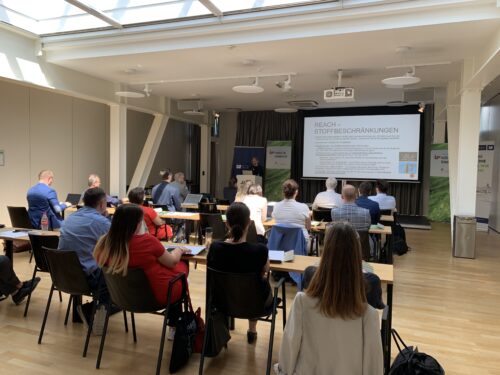
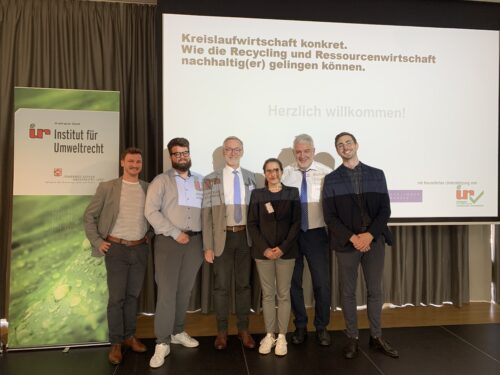
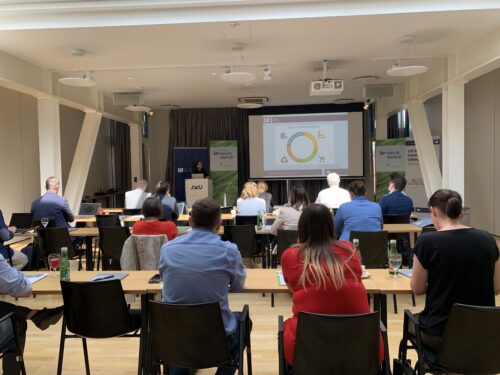
8. July 2022
